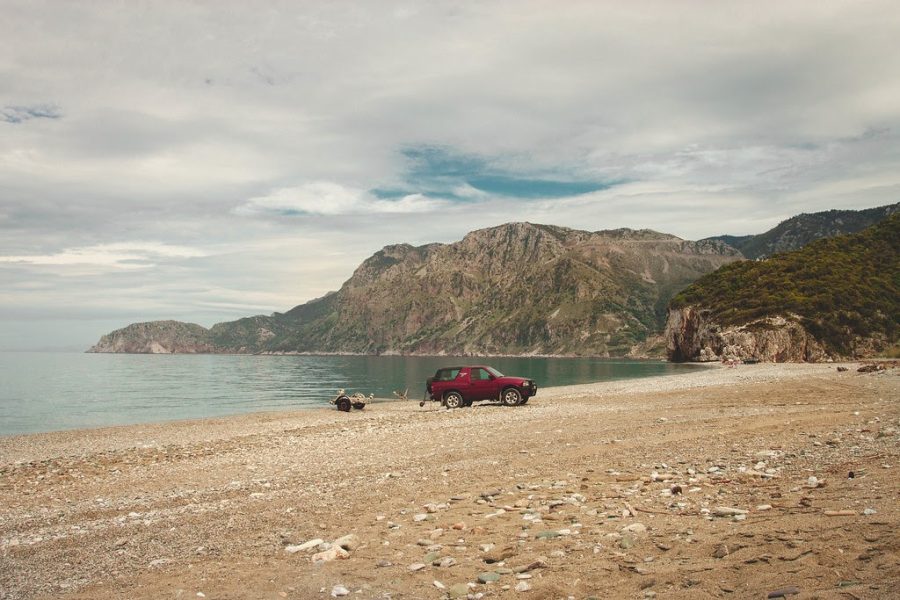Fire and flooding bring tragedy to Greece’s Evia island
Nikos Patsiouris//Creative Commons
“Evia Island, Hiliadou Beach”
Between wildfires and recent floods, Greece’s Evia Island has suffered a devastating 2021.
In August, the island was ravaged by wildfires that, according to a New York Times article “devastated more than 120,000 acres of pine forest, destroyed homes and displaced hundreds of people.”
Evia, the second most populous Greek island, is close to the country’s mainland.
According to the New York Times, Greek Prime Minister Kyriakos Mitsotakis said that the days immediately following the fire were among the hardest that the country has experienced in decades.
However, the residents of Evia were determined to come together as a community, even in the face of disaster.
“In the town of Prokopi, volunteer firefighters set up base in the Forest Museum (‘focused on man and his relationship to the forest’),” the New York Times reported. “Hundreds of boxes…brimmed with crackers and cereals and granola bars. Soft stacks of children-and-adult diapers reached up to the windows. Boxes held medicines and burn creams, aloe vera, Flamigel, hydrogel and Flogo Instant Calm Spray, under a sign promoting TWIG, the Transnational Woodland Industries Group.”
For some in the United States, wildfires of this magnitude may not seem out of the norm.
According to an Oct. 15 Associated Press article, “California wildfires have scorched nearly 3,900 square miles (10,101 square kilometers) this year and destroyed more than 3,600 homes, businesses and other structures, according to the state Department of Forestry and Fire Protection.”
One common cause has been identified both for this standout fire as well as California’s endemic wildfires. Rapid changes in climate due to global warming have resulted in droughts and heat waves, which increase the likelihood of wildfires and make them more destructive.
Unfortunately, things have not gotten better for Evia after the fire.
No casualties were reported, but “dozens of residents had to be evacuated from flooded homes, roads became impassable and beaches were filled with mud sliding down from nearby mountains that were now devoid of vegetation,” the Associated Press wrote on Oct. 10. “Officials who inspected the damage announced the government will accelerate a 20 million-euro ($23 million) program to aid the devastated areas.”
In an Oct. 11 follow-up article, the Associated Press reported that according to Evia authorities, “more than 200 homes were damaged by weekend flooding, with most of the affected areas left unprotected in the wake of huge summer wildfires.”
These incidents highlight the dire situation facing the island of Evia and the world at large.
As reported by the New York Times in August, “Europe has always considered itself a climate leader.” In July, it pledged to cut more than 50 percent of emissions in the next 10 years, considering this to be a decisive moment for the planet.
However, the continent was hit by a string of natural disasters this summer. Wildfires roared in Sweden, Finland, and Norway. Germany, Belgium and the Netherlands suffered from flooding. Beyond Europe and the U.S., wildfires also blazed in Turkey and Algeria.
As reported by the Associated Press, this summer also saw the release of the U.N.’s comprehensive Intergovernmental Panel on Climate Change report. The multimedia report, authored by numerous scientists, states that “as the planet warms, places will get hit more not just by extreme weather but by multiple climate disasters at once.”











